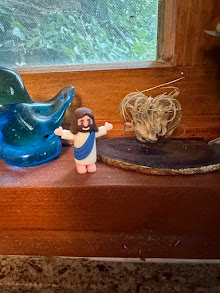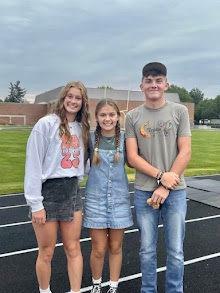It’s luring me on as of old;
Yet it isn’t the gold that I’m wanting
So much as just finding the gold.
It’s the great, big, broad land ’way up yonder,
It’s the forests where silence has lease;
It’s the beauty that thrills me with wonder,
It’s the stillness that fills me with peace.”
“A bunch of the boys were whooping it up in the Malamute saloon;
The kid that handles the music-box was hitting a jag-time tune;
Back of the bar, in a solo game, sat Dangerous Dan McGrew,
And watching his luck was his light-o'-love, the lady that's known as Lou.
The Shooting of Dan McGrew by Robert Service
“The name Alaska is probably an abbreviation of Unalaska, derived from the original Aleut word agunalaksh, which means "the shores where the sea breaks its back." The war between water and land is never-ending. Waves shatter themselves in spent fury against the rocky bulwarks of the coast; giant tides eat away the sand beaches and alter the entire contour of an island overnight; williwaw winds pour down the side of a volcano like snow sliding off a roof, building to a hundred-mile velocity in a matter of minutes and churning the ocean into a maelstrom where the stoutest vessels founder.”
― Corey Ford, Where the Sea Breaks Its Back: The Epic Story - Georg Steller & the Russian Exploration of AK
"The only society I like," he once said, "is that which is rough and tough - and the tougher the better. That's where you get down to bedrock and meet human people." Robert Service
“To wake up on a gloriously bright morning, in a tent pitched beneath spruce trees, and to look out lazily and sleepily for a moment from the open side of the tent, across the dead camp-fire of the night before, to the river, where the light of morning rests and perhaps some early-rising[240] native is gliding in his birch canoe; to go to the river and freshen one's self with the cold water, and yell exultingly to the gulls and hell-divers, in the very joy of living; or to wake at night, when you have rolled in your blankets in the frost-stricken dying grass without a tent, and to look up through the leaves above to the dark sky and the flashing stars, and hear far off the call of a night bird or the howl of a wolf: this is the poetry, the joy of a wild and roving existence, which cannot come too often”
Where the river is windin',
Big nuggets they're findin';
They're goin' North to Alaska!
Go North! The rush is on...
Johnny Horton
I gotta admit it: I am more likely to hit the bass note in 'North to Alaska' than to mush a dog team or partake of the type of activities that Robert Service would consider 'rough and tough'. But the lure of the country is a current that runs deep and strong; a tourist I might be, but one with waterproof boots, a raincoat, a camera, and a desire to partake, however briefly, in the wonders and grandeur of a "a wild and roving existence". In that spirit, I welcome the gray morning light that wakes me two time zones early. At daybreak the silvery Tongass Narrows comes alive as fishing boats leave wakes like water bugs and pontoon planes lift off like dragonflies. In one way, the work of Alaska is alien: harvesting a watery world, a forested world, a rocky world. But the folks headed off this quiet morning are still kin: we are toiling at the whim of Mother Nature, dependent upon the vagaries of wind, rain, and temperature, whether we till the soil in the Midwest or harvest trees in Alaska.
It is also a mysterious and wondrous world manifested in the totems and art of the tales and lives of the native peoples that made the waters and woods their homes.
Some people belittle glaciers as nothing more that "dirty snow", but don't count me in that group! To awake in gray light to the silent passing of a blue berg passing before an opaque black forest is to be awestruck by the majesty and scale of this creation and your own minuscule part in it. The ship passes like a ghost in the waters below, the waters above, the fog shrouding all. Uncounted waterfalls cascade over the edges of the glacier sheared cliffs and pour their foam into the fjord. We are floating like a leaf, leaving next to no wake, icebergs of snowy white, gravelly gray and turquoise blue drifting with us in the milky water. Then, around a jutting ledge, we see the glacier in the distance, an immense jagged river of antique ice, compressed like rock but flowing like water, pouring out between two cliffs. It is huge, dwarfing the iceberg calves at its feet, which dwarf the smaller excursion boat of visitors that edges nearer. We stand in the all enveloping mist watching until the glacier disappears behind the mountains.

The irresistible lure of gold met the immovable force of Alaska back in 1898, making Skagway a launching point to the Klondike Gold Rush. Up through the White Pass the would be miners struggled, carrying their one ton stake of supplies on horses that soon foundered under the severe conditions, or on their own backs, mile by mile, pound by pound. We make the trip through the Pass in dense fog. Our intrepid coach driver tells us that the grocery barge arrives on Tuesday nights in Skagway; there's not much left in the produce aisle or dairy case in the town's grocery store after the weekend. Amazon is very popular in Alaska, and many folks head down to the Costco in Juneau to order supplies by the pallet. She used to fly to Anchorage from the Eskimo village where she taught, mail her clothes back home, and fill her suitcases with meat and produce for the ten hour flight back. Not exactly the hardship the Klondikers faced, but still a magnitude or two of difficulty above a two hour drive on I-29. The White Pass and Yukon train carries a light load of vacationers these days, but when it was built, its 110 miles, steep grades and sharp curves made it an engineering marvel. The line was blasted through the mountain peaks in a mere 26 months using more than 450 tons of explosives.
“This country makes a man younger than his birthdays.”







































No comments:
Post a Comment